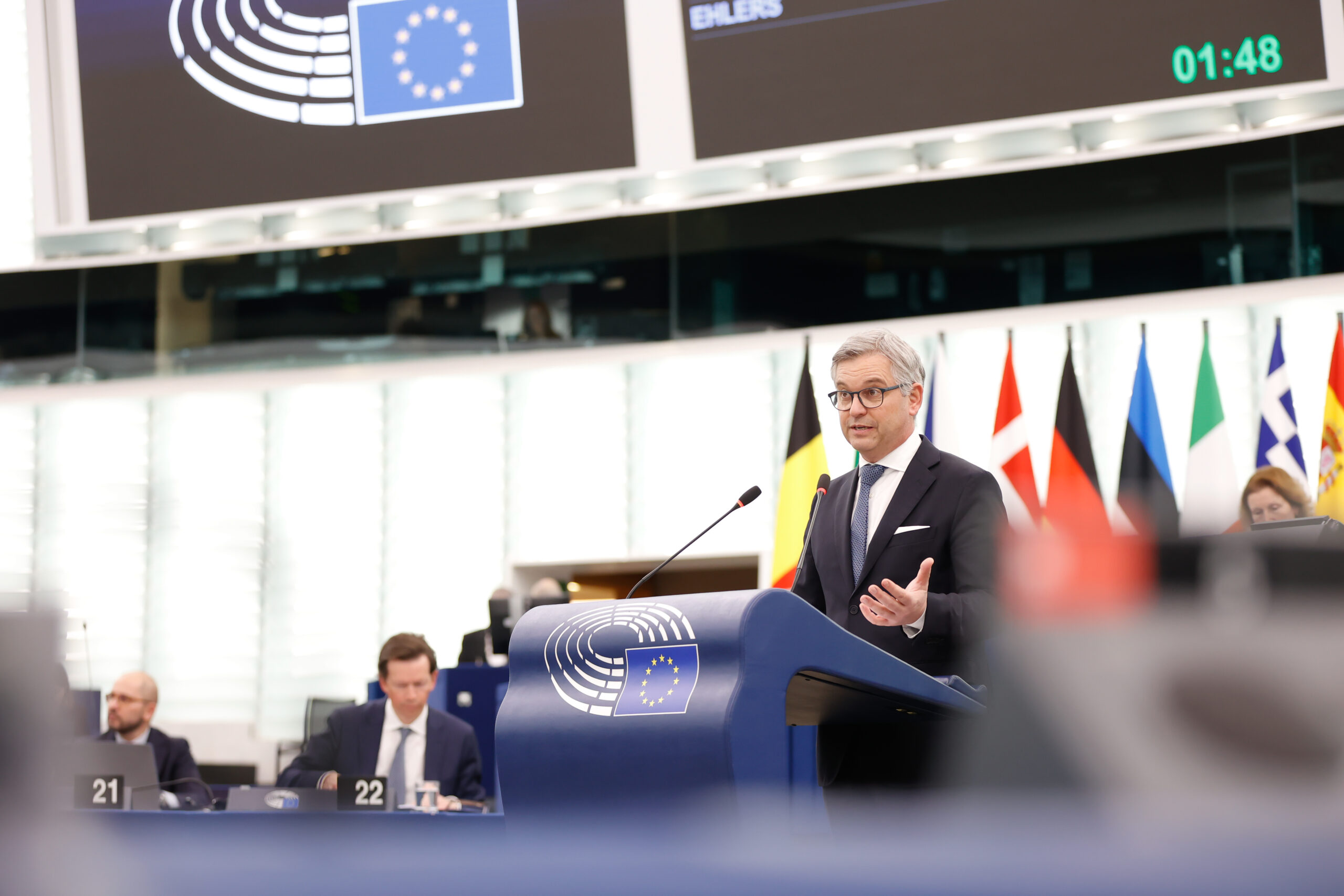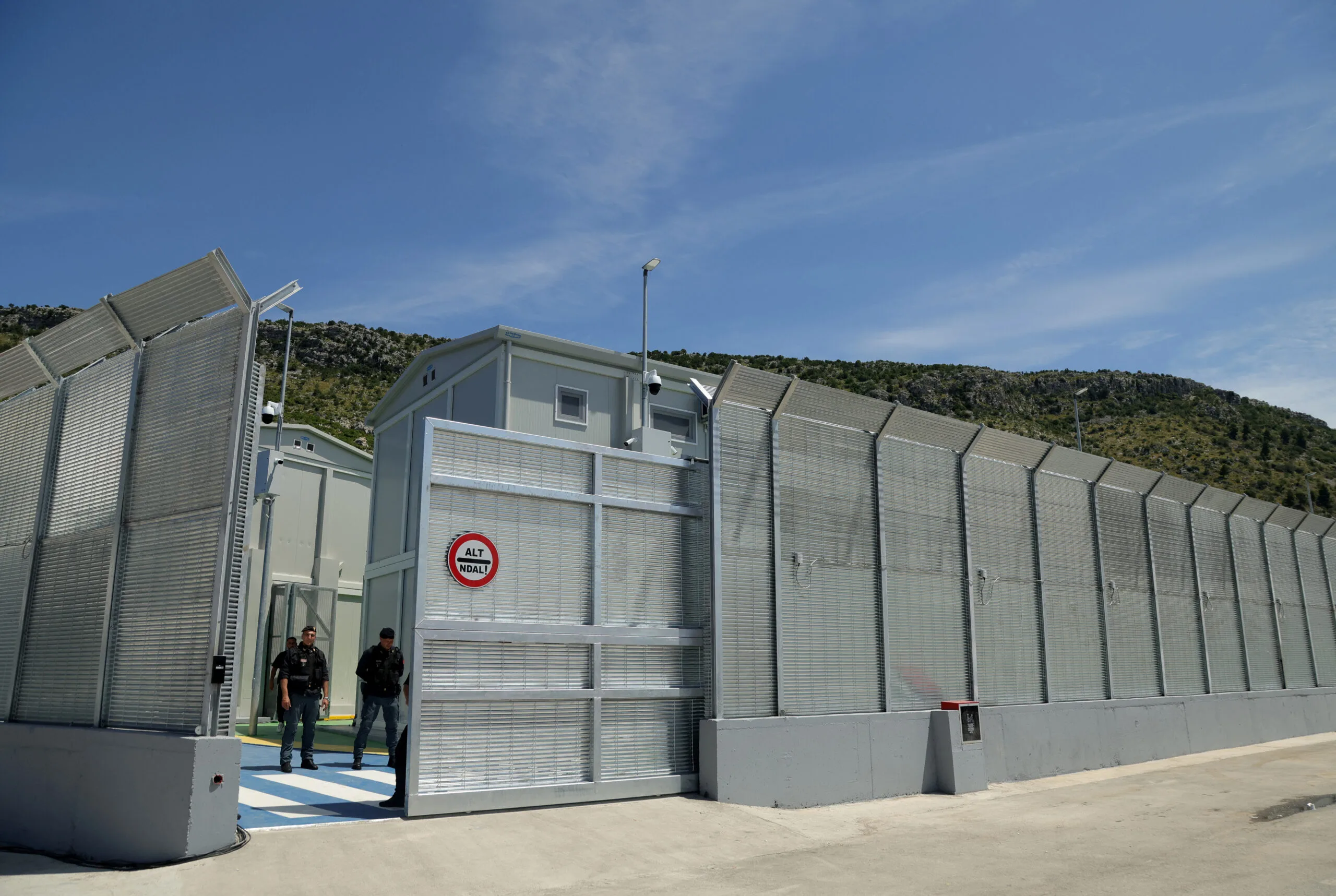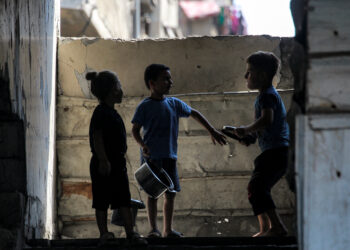Brussels – The European Commission raises the bar a bit further on what is legitimate to do to combat irregular migration. Repatriations are the new obsession: Of all migrants ordered to leave EU territory, only one in five does so. Without an agreement with the countries of origin, Brussels chooses to take two paths: on the one hand, standardizing procedures among member countries and hardening penalties for those who do not cooperate, and on the other, deporting migrants to be returned to detention centers in third countries, the famous return hubs.
The provisions included in the proposed regulation that the EU Commissioner for Home Affairs, Magnus Brunner, and the Executive Vice-President of the European Commission, Henna Virkkunnen, unveiled today (March 11) would replace the “no longer suitable” directive in force since 2008. Domestically, the idea is to establish a European return order to promote greater recognition of return decisions among member states. “When a member state orders someone to leave, they have to leave the whole EU,” Brunner said from the Strasbourg hemicycle. At first, direct enforcement of a return decision issued by another EU capital, without having to start a new process, will be voluntary. However, the Commission plans to make mutual recognition mandatory by 2027.
At the same time, Brussels wants to impose more explicit obligations to cooperate with national authorities during the repatriation procedure, supplemented by explicit consequences for non-cooperation (such as reduction or denial of benefits or seizure of travel documents). Should the proposed new incentives for voluntary returns not be enough, the European Commission is considering making forced returns mandatory against those who do not cooperate, flee to another member state, do not leave the EU by the deadline for voluntary departure, or pose a security risk. “People who pose a threat cannot be allowed to remain free on our streets in Europe with the potential risk to others,” Brunner said, listing a range of measures “to protect against security risks, including detention (for up to two years, Ed.), forced returns, and even longer entry bans,” for a maximum of ten years, with the possibility of further extensions for subsequent periods of up to five years.

Ultimately, there is a need for agreements with their countries of origin to readmit migrants. “A return decision means nothing if there is no readmission,” Brunner said. For several reasons, reaching such deals isn’t easy, which is the main crux. That is why at the end of Brunner’s proposal are the controversial third-country repatriation centers, and – reading the details – the fears the EU Agency for Fundamental Rights (FRA) expressed a month ago seem founded as they could take the form of “zones without rights.”
In essence, under pressure from those member states led by far-right parties calling for “innovative solutions for migration management,” the EU executive proposes to introduce the legal possibility for EU governments to enter into agreements with third countries where to transfer persons who are staying illegally on national territory and who have received a final return decision. Agreements “may be concluded with countries that respect international human rights standards and principles,” the text emphasized.
External hubs for returns “are completely different” from the models – so far unsuccessful – pioneered with the Italy-Albania protocol or between the UK and Rwanda. In particular, the protocol between Rome and Tirana “is about asylum seekers,” while “the return hubs, which we will make possible for member states, are about people who already have a return order,” Brunner and Virkkunnen pointed out to the press. However, Brunner added, “We are open to all other innovative solutions.” It’s not exactly a rejection of the plan to outsource asylum procedures that Meloni is betting on, but at least a deferral to further future tightening. Or how far member states will go in practice.

For the time being, the European Commission is merely setting a legal basis for EU governments to reach agreements with third countries. “The specifics are for negotiations; the repatriation hub model may take one form or another,” a senior EU official confirms. Conditions of stay, maximum length of detention, and possible scenarios at the end of detention “will be defined in agreements” between member countries and countries that will host the centers.
The only safeguards indicated in the Brussels proposal are the exclusion of families with minors and unaccompanied minors and the mandatory establishment of a monitoring mechanism to implement such deals. The European Commission will view bilateral arrangements on return hubs and then have “the ability to promptly detect whether or not there are serious concerns and to identify possible violations,” a source close to the dossier explains. However, this does not mean that “the EU will be in charge” of monitoring the centers. Even this detail is left to future arrangements for now.
A broad spectrum of political forces has urged a crackdown on repatriations, from the far right to some formations of the progressive camp, in the wake of cases of violence and crime involving marginalized migrants subject to repatriation orders and instead still residing on EU soil. Those who favor a security-driven narrative over the more complex efforts of reception and integration exploit these episodes skillfully. However, on detention centers outside the EU, the European Commission may be cashing in on the no vote from part of the pro-European majority that supports it: from social democrats to liberals and greens, there are many doubts. In an attempt to propose “concrete solutions” precisely to shut up the anti-migrant propaganda gaining space in Europe, there is the risk that the moderate, Christian right-wing that is a prominent expression of the EU executive will end up having to turn precisely to the far-right parties to support its plan on returns.
English version by the Translation Service of Withub




![La presidente della Commissione europea, Ursula von der Leyen, presenta la proposta di bilancio pluriennale [Bruxelles, 16 luglio 2025. Foto: Emanuele Bonini]](https://www.eunews.it/wp-content/uploads/2025/07/Vdl-mff-350x250.jpeg)



![Isabel Vansteenkiste (sinistra) sarà la nuova consigliera particolare della presidente della Bce, Christine Lagarade (destra).
[foto: European Central Bank; Wikimedia Commons]](https://www.eunews.it/wp-content/uploads/2025/07/vandlagar-120x86.png)

